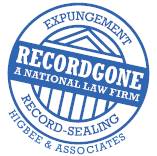On December 20th, 2017, Governor Chris Christie signed a package of bills that will build on New Jersey’s continuing efforts of providing post conviction relief to its rehabilitated residents. The highlight of these three bills is the reduction of the current waiting period for indictable (felony) convictions from 10 years to 6 years. Once in effect, S3307, S3308, and S3306 will immediately make more people eligible for expungement than are eligible under the current law.
S3307 will have the greatest impact on eligibility for expungement of New Jersey offenses. It will go into effect in October of 2018 and immediately make eligible people who were previously not eligible because they had one too many minor offenses, or had not yet met the waiting period. Basically the law will allow an individual:
- To file for standard expungement after 6 years from the date of discharge from probation, date of fine payment, or issuance of sentence (whichever is later). Current law requires you to wait 10 years before filing for a standard expungement. The “public interest” or “early pathways” expungement is left intact, so you can file after a 5 year waiting period if you can show that granting your expungement is in the “public interest.” However having an expungement granted under this pathway requires significantly more paperwork, and is more challenging to have granted, which is why the new waiting period of 6 years for a standard expungement is so important.
- To have 3 disorderly or petty disorderly persons offense convictions with an indictable offense, or to have 4 disorderly or petty disorderly persons offense convictions and still be eligible for an expungement. The new law will allow for an individual to have one additional minor offense on their record and still be eligible for expungement.
- To have all offenses and crimes listed on a single judgement of conviction to be expunged. Under current law having all offenses were listed under one judgement of conviction does not make all offenses eligible, in fact many people could be found ineligible because of multiple convictions if they were not considered part of the same crime event.
This bill represents an important step in providing more deserving people the opportunity at receiving a second chance. It will go into effect October 1st, 2018.
The second bill, S3308, will affect a smaller segment of the population than S3307, but it is important nonetheless. This bill will simply reduce the waiting period of expungement for juvenile offenses from 5 years to 3 years. This law will go into effect in April 1st, 2018. It gives youthful offenders an earlier opportunity of cleaning up a past mistake. Young people can make very irresponsible decisions, and it is important that they be given the opportunity to move on from their mistakes in a timely manner.
Finally, the third bill of the package, S3306, further strengthens New Jersey’s “Ban the Box” law. Language is added to the law that will make it so employers cannot ask an applicant about expunged records, and it prohibits employers from conducting an online search for both expunged and non-expunged criminal records during the initial employment application process. Policies such as this allow for qualified people who have mistakes on their record to have a fair shot at the employment application process. Ultimately though, nothing beats having the record expunged.
The trio of bills signed by Gov. Christie represent an important move by the New Jersey government to provide rehabilitated citizens the opportunity at a second chance. These bills will help untold numbers of reformed New Jerseyans, and Recordgone stands ready to provide newly eligible individuals cost effective and professional legal services when the new laws go into effect. In the meantime we will continue to provide excellent legal services under the current law. Please take our expungement eligibility test to see if you are eligible to start on you case today!



